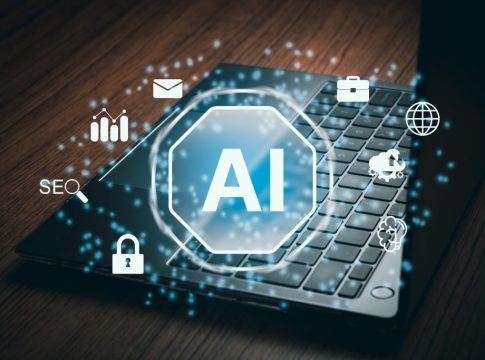The Looming Threat of "Model Collapse" in AI: A Data Dilemma
A Flood of Low-Quality Content
The rapid rise of generative AI tools like ChatGPT has transformed digital content creation, yet this boom carries a troubling downside. Recent insights from researchers suggest that the proliferation of low-quality, AI-generated material is endangering the future of artificial intelligence itself. As AI models learn increasingly from their own less-than-stellar outputs rather than from high-quality human knowledge, a cycle known as "model collapse" begins to take shape.
The Contamination of AI Data
Researchers draw a striking parallel between the current state of AI training data and a unique material known as "low-background steel"—which was produced before nuclear testing and remains coveted for medical and scientific applications. In this context, data generated before the explosion of AI tools in 2022 is seen as "clean" and reliable. Conversely, the digital landscape that unfolds afterward is perceived as "polluted." As AI systems increasingly mimic existing machine outputs, original and useful information dwindles.
The Risks of Flawed Techniques
One major area of concern is the use of retrieval-augmented generation, a technique that enables AI to pull real-time data from the internet. While this might seem promising, it often amplifies the problem of spreading flawed content. Research indicates that this method could lead to more "unsafe" outputs, underscoring a critical vulnerability in AI development practices.
Limitations Without Clean Data
The implications of relying on polluted datasets are severe. According to Cambridge researcher Maurice Chiodo, the ability to scale AI models by adding more data could hit a wall if that data isn’t trustworthy. Without access to clean, high-quality reserves, the advancement of AI could experience significant stagnation.
The Call for Regulation
Chiodo and his colleagues advocate for urgent measures, including proper labeling of AI-generated content and stricter regulatory controls. However, resistance from the tech industry poses a significant barrier to meaningful reform. The challenge lies not only in recognizing the pollution in our data but also in finding feasible solutions to reverse it.
Moving Forward: A Collective Responsibility
As we integrate AI more deeply into business, society, and daily life, we must remain vigilant about the quality of the data we feed these systems. Ensuring a cleaner information ecosystem is not just beneficial but necessary for the healthy evolution of artificial intelligence. Balancing innovation with responsibility should become a hallmark of the AI landscape, steering us towards a smarter and more ethical future.
The discourse surrounding AI’s data dependencies is crucial; solutions must come from a collective endeavor involving policymakers, technologists, and researchers. As we push forward, it will be up to us to safeguard the integrity of our digital future.

Writes about personal finance, side hustles, gadgets, and tech innovation.
Bio: Priya specializes in making complex financial and tech topics easy to digest, with experience in fintech and consumer reviews.

